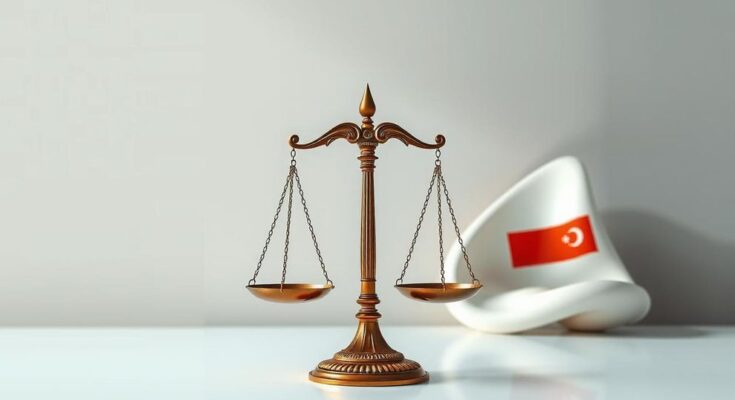Recent judicial outcomes in Kyrgyzstan and Uzbekistan show lenient penalties for citizens who joined Russia’s military efforts in Ukraine, despite laws prohibiting such actions. Notable cases included conditional sentences rather than lengthy prison terms, revealing pressures from Russia amidst recruitment strategies in the region. Observers criticize these developments as moral failures that prioritize individual welfare over the impact on Ukraine’s victims.
Recent rulings in Uzbekistan and Kyrgyzstan concerning citizens who participated in the war for Russia reveal that legal repercussions may be considerably lenient. Despite significant legal frameworks against fighting in foreign wars, courts have issued conditional sentences instead of the possible maximum jail terms. This suggests a potential shift in enforcement and attitudes towards recruitment pressures from Russia amid the ongoing conflict in Ukraine.
In light of legal developments, Kyrgyzstan’s Askar Kubanychbek-uulu initially received a 10-year term for joining the Russian Army but was later released under a conditional probation agreement after international scrutiny. He subsequently returned to Russia, intent on continuing his military service. Similarly, other Kyrgyz and Uzbek citizens found themselves facing fewer penalties than anticipated, reflecting a serious engagement with Moscow’s interests despite their own governments’ laws.
The recruitment of Central Asian nationals to fight for Russia has become a contentious issue. Although actual numbers remain unclear, it is evident that many from Uzbekistan and Kyrgyzstan have been drawn into the conflict. Local authorities face challenges as they simultaneously aim to deter enlistment while managing Moscow’s expectations, leading to cases of non-custodial sentences and conditional releases among returning fighters from the frontlines.
Moreover, some Uzbek citizens have also received mild sentences. For instance, one individual was originally sentenced to six years but saw that reduced to a conditional term due to compassion for family circumstances. As these leniencies occur, observers have critiqued the moral implications of prioritizing the well-being of convicted fighters’ families over the impact on Ukrainian victims of the conflict, highlighting a complex ethical landscape in the region.
The situation has become a point of contention, with commentators expressing concerns that the legal leniency serves as an implicit advertisement for military enlistment. Uzbek journalist Mukhrrim Azamkhojaev described the situation as a “sales campaign,” suggesting that citizens are being encouraged to join the Russian military by the prospect of financial gain, thus underscoring the tension between regional security interests and the human costs of war.
The involvement of Central Asians in Russia’s military operations in Ukraine raises significant legal and ethical questions. Uzbekistan and Kyrgyzstan possess laws that punish citizens engaging in foreign military conflicts, yet recent cases reveal that judicial practices may not be as stringent as the law suggests. This disparity between stated legal consequences and actual sentencing outcomes may reflect broader geopolitical pressures and the socioeconomic factors prompting local citizens to enlist, complicating the political dynamics in the region as both governments attempt to navigate their relationships with Russia amidst the ongoing war.
In summary, the lenient judicial outcomes for those joining Russia’s military in Ukraine signal a troubling trend in Kyrgyzstan and Uzbekistan concerning war participation. While laws exist to deter enlistment, the practical application appears to capitulate to external pressures from Russia. As regional tensions rise due to the conflict, the ethical implications of prioritizing familial welfare over broader humanitarian concerns become increasingly pronounced, illustrating the complex interplay of local and international politics in the context of warfare.
Original Source: www.rferl.org




